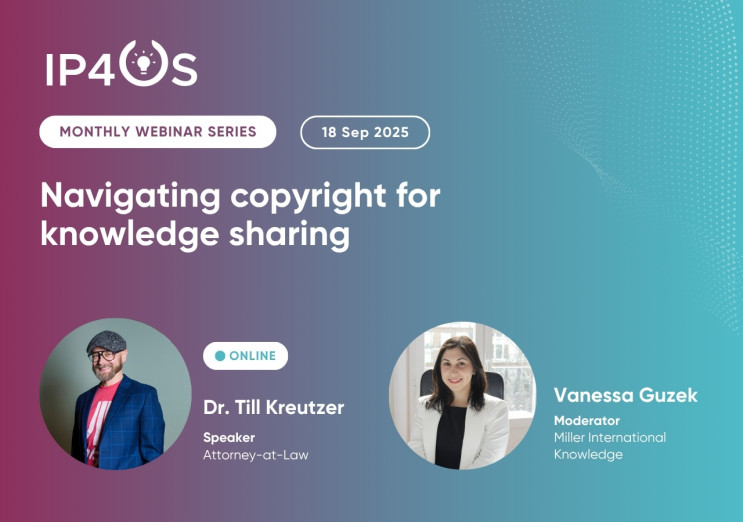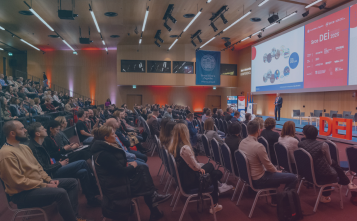
Open science and the law: Navigating copyright for knowledge sharing
As part of IP4OS’ monthly webinar series, Vanessa Guzek (Miller International Knowledge) hosted Dr. Till Kreutzer, lawyer and co-founder of iRights.Law, to explore the intersection of copyright and open science. The session focused on distinguishing between copyright-protected works (e.g., texts, music, software code) and non-protectable data or facts, and how this distinction shapes open access practices.
Dr. Kreutzer explained that research data and findings are generally not copyrightable and therefore belong to the public domain, while creative works built on them may be protected. He highlighted the role of the Berlin Declaration on Open Access (2003) and Creative Commons licenses in enabling lawful reuse of academic content. Importantly, only certain CC licenses (CC BY, CC BY-SA, CC0) align with open access principles, while restrictive variants (NC, ND) do not.
The discussion also addressed database rights, industry vs. public sector motivations, and current challenges around AI training data. Dr. Kreutzer emphasised that open content licenses reduce transaction costs and legal uncertainty, supporting both academic collaboration and societal benefit.

